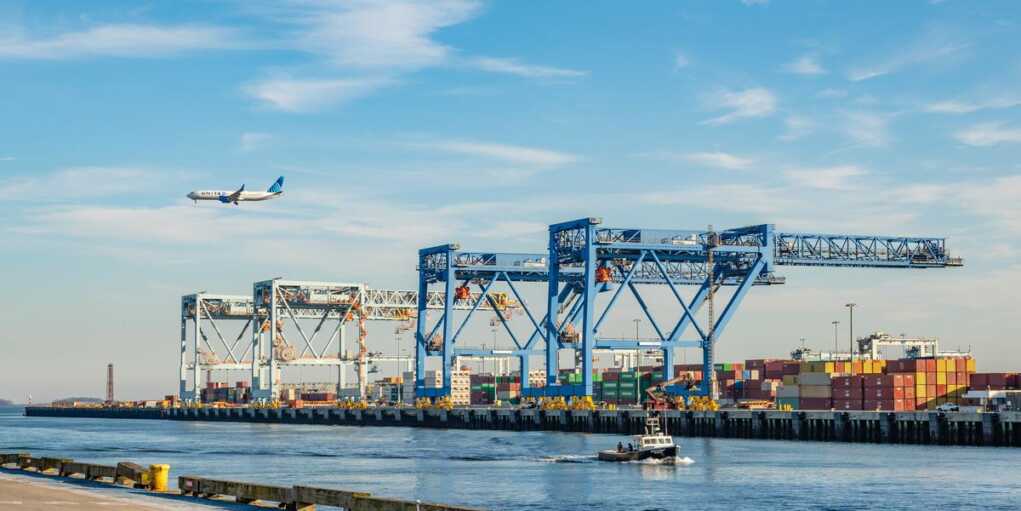Democrats Move to Give Illegal Aliens Another Big Gift
Illegal aliens with criminal convictions in Washington state could soon be granted “expedited” pardons and commutations under a Democrat-backed bill — potentially jumping ahead of American citizens in line for clemency. H.B. 1131, which has now passed both chambers of the state legislature, directs the Washington Clemency and Pardons Board to prioritize cases where a […]
Mike Rowe Says Trump’s Plan Could Backfire If America Isn’t Ready
President Trump’s tariff plan is poised to bring manufacturing jobs back to American soil—but one of the country’s most well-known blue-collar champions is sounding the alarm about what happens next. Mike Rowe, host of Dirty Jobs and longtime advocate for skilled labor, told comedian Theo Von this week that while he supports Trump’s efforts to […]
Trump’s Surprise Move on China Sends Markets Spinning
President Trump sparked new speculation Wednesday about the future of his trade war with China, following a report that he may soon slash tariffs on Chinese imports—just weeks after hitting Beijing with some of the harshest trade penalties in U.S. history. According to a Wall Street Journal exclusive, the Trump administration is considering a “tiered” […]
Guess Who’s Behind The Push to Decriminalize Illegal Immigration
A newly surfaced profile of Alex Soros, heir to George Soros’s massive left-wing network, is shedding light on how a handful of Soros-funded activist groups successfully pressured Democrats to back one of their most fringe ideas yet: decriminalizing illegal border crossings. According to New York Magazine, a coalition of eight progressive NGOs—seven of which receive […]
Are Deportations Happening Fast Enough? Trump Responds
President Donald Trump says his administration has delivered historic success in securing the southern border—but warns that federal courts are now the biggest obstacle to removing thousands of dangerous illegal immigrants. In an exclusive exchange with Daily Caller White House Correspondent Reagan Reese on Tuesday, Trump said he’s proud of what his administration has accomplished […]
Top Hospitals Are Finding “Loopholes” To Dodge Trump’s DEI Ban
The Mayo Clinic is scrambling to save its diversity agenda by renaming it—just weeks after President Trump signed an executive order banning all DEI-related programs tied to federal funding. But the rebrand may not be enough to dodge Washington’s crackdown. The world-renowned nonprofit medical group has renamed its “Office of Diversity, Equity, and Inclusion” to […]
China Shuts Off Rare Earth Pipeline In Devastating Blow To U.S. Industry
China has halted exports of several rare earth minerals essential to the U.S. tech, defense, and energy sectors—sending shockwaves through Washington and industry leaders alike. As of April 3, China officially stopped exporting seven heavy rare earth metals, along with rare earth magnets—resources vital to manufacturing electric vehicles, aircraft components, advanced weaponry, and high-tech electronics. […]
Senator’s Foreign Trip Sparks Outrage From Grieving Mothers
Sen. Chris Van Hollen is under fire from Angel Moms who say he’s ignoring American families destroyed by illegal alien crime—while fighting to bring a suspected MS-13 gang member back into the U.S. Van Hollen, a Democrat from Maryland, flew to El Salvador this week to visit 29-year-old Kilmar Abrego Garcia, who was deported by […]
Rubio Crushes Censorship Machine At State Department
Secretary Rubio announced on Wednesday that the State Department is officially shutting down the Global Engagement Center (GEC), fulfilling a major Trump administration goal of dismantling the so-called “censorship-industrial complex.” Rubio delivered the news in an op-ed published by the Federalist, writing, “Today, it is my pleasure to announce the State Department is taking a […]
Teen Assassin? Chilling Trump Plot Uncovered After Parents Found Dead
A 17-year-old Wisconsin boy has been charged in a chilling assassination plot against President Donald Trump, one that involved the murder of his own mother and stepfather to fund the operation. Federal investigators say Nikita Casap was in contact with outside conspirators, had built explosives, and was planning to use a drone in the attack. […]
James Carville to the Woke Left: Leave the Party and Take Your Pronouns With You
James Carville is done biting his tongue. The longtime Democratic strategist, who helped elect Bill Clinton and has remained one of the party’s most candid voices, dropped a blunt message to the far-left this week: maybe it’s time for you to go your own way. In a video released Tuesday by Politicon, Carville floated the […]
Kamala’s “In Case He Dies” Spreadsheet Raises Eyebrows Across D.C.
A bombshell new book and a revealing interview have pulled back the curtain on a bizarre contingency plan swirling inside the Biden administration—one that involved then–Vice President Kamala Harris preparing for the presidency with a spreadsheet… just in case Joe Biden didn’t make it. During a recent appearance on The Glenn Beck Program, political journalist […]
Dem Power Grab Could Gut Free Speech Protections
A bill moving through the Texas Legislature threatens to dismantle one of the state’s strongest protections for free speech—just to make it easier for the powerful to weaponize the courts against their critics. The Texas Citizens Participation Act (TCPA), passed in 2011 with bipartisan support, was designed to protect Texans from Strategic Lawsuits Against Public […]
School Board Meeting Turns Chaotic When A Conservative Dad Says This
A Maine father was abruptly cut off and dismissed from a school board meeting this week after he spoke out against biological males playing in girls’ sports—a stance that drew cheers from some in the audience and censorship from the school board chair. Nick Blanchard, wearing a red MAGA hat and a shirt declaring Democratic […]
Busted: Climate Panic Is a $7 Billion Grift — And You’re Paying for It
Despite Elon Musk and the Department of Government Efficiency (DOGE) making waves by slashing waste, one particularly egregious racket continues draining your wallet: billions of taxpayer dollars handed over to so-called climate consultants who profit by peddling panic. At the heart of this mess is the U.S. Global Change Research Program, a bloated federal initiative […]
















